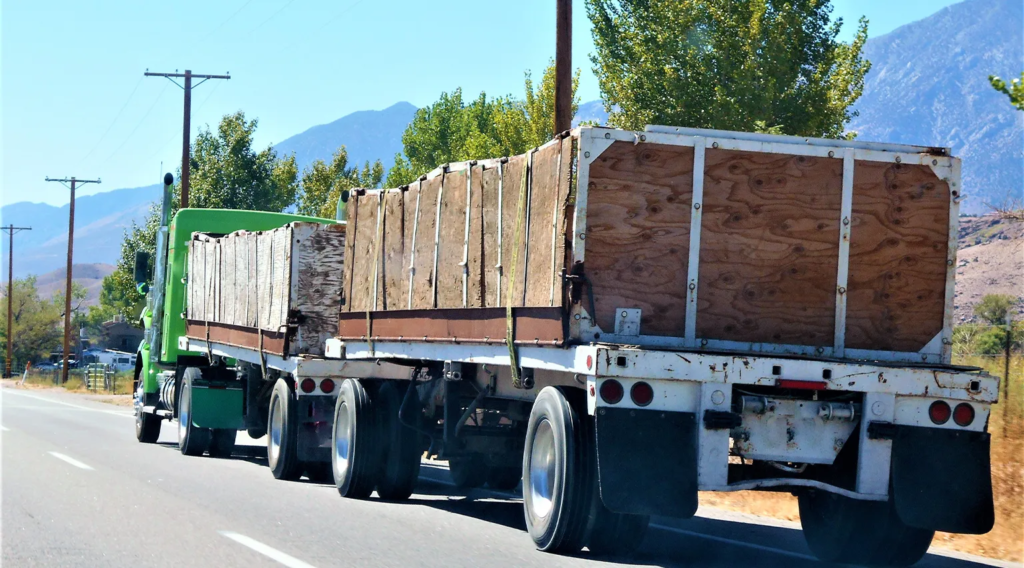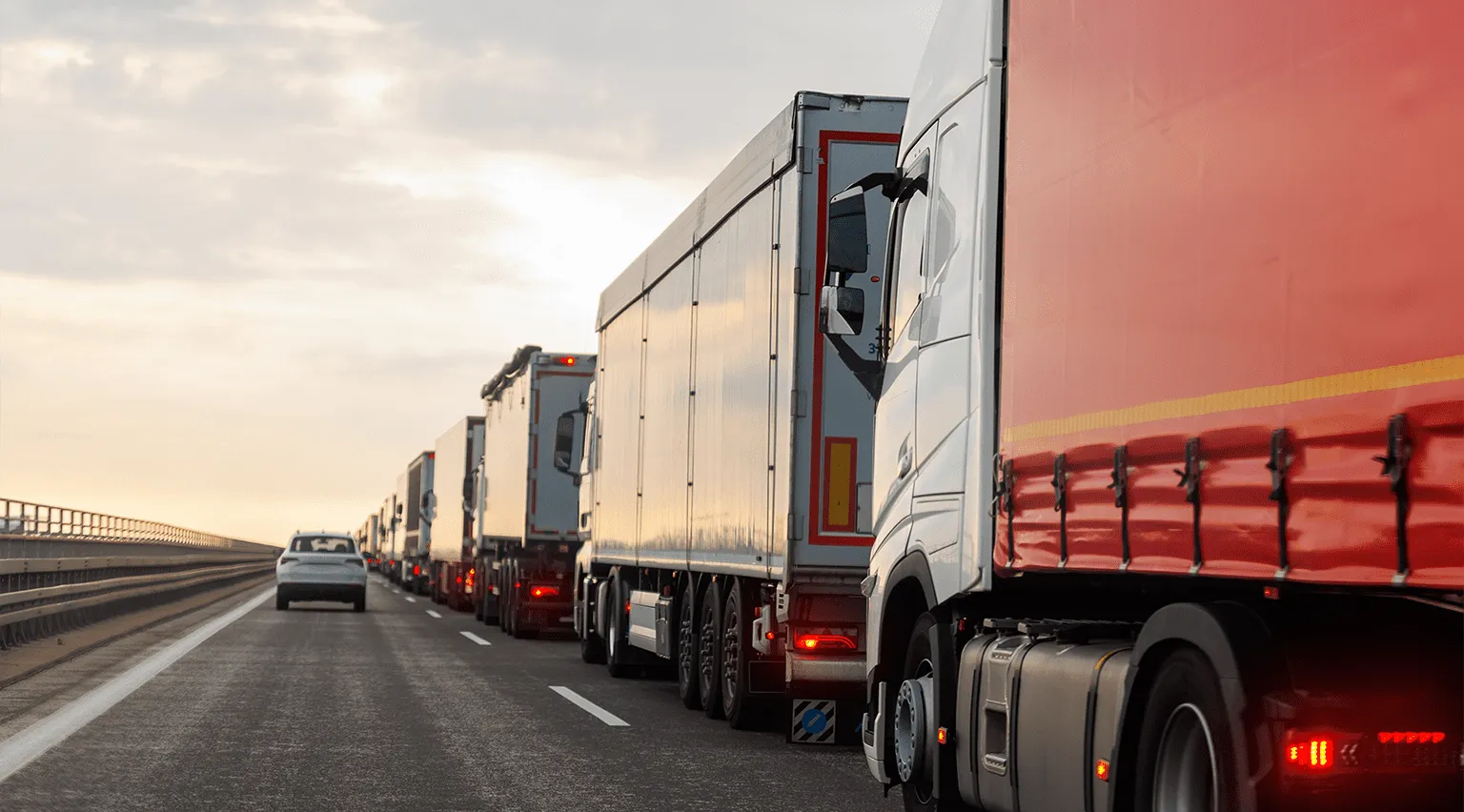In today’s fast-moving supply chain environment, timely delivery and vehicle utilization are key concerns for logistics operators. Whether managing a small fleet or handling regional deliveries, the ability to find truck load online and organize efficient logistics for trucking has transformed how transporters and businesses interact.
Technology has played a crucial role in bridging the gap between available freight and idle trucks. With the growing use of digital platforms and apps, the traditional methods of calling agents or waiting at transport hubs are being replaced by streamlined online booking systems.
This blog explores how logistics can be improved through digital tools and why online load booking is the future of trucking.
Understanding the Logistics for the Trucking Sector

The term logistics for trucking refers to the systematic coordination of goods transportation via road. It includes scheduling deliveries, managing fleets, allocating drivers, maintaining compliance with transport regulations, and ensuring goods are moved efficiently from one point to another.
Logistics in trucking isn’t limited to long-haul services. It includes first-mile pickups, last-mile delivery, intercity transport, and intra-state freight movement. With rising consumer expectations, businesses are under pressure to optimize delivery schedules, reduce costs, and provide real-time visibility into shipment movement.
Technology has helped logistics operators do this better than ever before, especially with tools that allow them to find truck load online quickly and accurately.
Traditional Challenges in Trucking Logistics

Before the rise of digital tools, most trucking operations relied on manual processes that led to inefficiencies. These included:
- Empty Return Trips: After completing delivery, trucks often returned without loads, leading to lost revenue and wasted fuel.
- Lack of Load Visibility: Operators were dependent on intermediaries for updates on load availability.
- Communication Delays: Delays in communication between shippers and drivers impacted delivery schedules.
- Low Operational Control: Fleet owners had limited control over delivery status and vehicle movement.
- Unorganized Paperwork: Manual documentation led to errors and time-consuming reconciliation processes.
These problems directly impacted delivery times, operating costs, and overall service quality. To improve their operations, transporters began looking for smarter ways to find truck load online and automate logistics tasks.
The Digital Shift in Trucking Operations

Technology has transformed how trucking businesses operate. Online load boards and digital freight platforms now offer real-time information on cargo availability. This allows drivers and fleet managers to plan their trips better and optimize truck utilization.
Platforms provide features such as:
- Load search by location, truck type, or destination
- Instant booking confirmations
- Rate comparisons for different routes and loads
- Access to verified shippers
- Online documentation and payment tracking
This digital access reduces dependency on phone calls or physical freight brokers and gives operators more flexibility to choose loads that match their capacity and route preferences.
With the right platform, it’s easier than ever to find truck load online, saving time, money, and effort.
Benefits of Finding Truck Loads Online

For fleet owners, truck drivers, and logistics managers, digital load matching offers multiple advantages:
Faster Load Matching
Manual efforts to secure cargo are time-consuming. Online systems offer instant access to hundreds of available loads, updated in real time. This allows trucks to be scheduled immediately after a delivery, reducing idle time.
Better Route Planning
When you find truck load online, you can sort jobs based on routes, destinations, and preferred load types. This helps in planning efficient trips, avoiding unnecessary diversions, and cutting down on fuel costs.
Increased Revenue
Trucks running empty lose money. With access to online loads, even return trips can be monetized. This increases fleet productivity and enhances overall profitability.
Reduced Operating Costs
Digital platforms eliminate the need for middlemen, reducing commission costs. They also support transparent pricing, so truckers and shippers can agree on competitive rates.
Real-Time Communication
Online load platforms often have in-built messaging and tracking features. This improves coordination between shippers and drivers and keeps everyone informed about the shipment status.
Role of Logistics in Optimizing Trucking Performance
While online load booking ensures consistent cargo availability, the bigger picture involves strengthening overall logistics for trucking. Efficient logistics management involves the following components:
Fleet Management
Knowing where your trucks are, their load status, and maintenance needs is essential. Fleet management tools allow logistics operators to monitor vehicle health, schedule servicing, and track mileage.
Driver Allocation
Assigning drivers based on experience, rest periods, and familiarity with routes is crucial to maintain service quality and meet compliance norms.
Route and Delivery Planning
Logistics systems help plan the best routes by factoring in distance, road conditions, toll charges, and delivery windows. They reduce delays and fuel consumption.
Cargo Safety
Secure loading methods, vehicle inspections, and load tracking ensure that goods reach their destination in proper condition.
Regulatory Compliance
Proper logistics planning ensures compliance with transport regulations, including e-way bills, road permits, and safety guidelines.
These components work together to support a more reliable and cost-effective trucking operation.
How Online Platforms Improve Logistics for Trucking
Digital freight platforms don’t just help you find truck load online—they serve as end-to-end logistics solutions. From trip scheduling to delivery confirmation, they bring automation to every stage of the process.
Here’s how:
- Load Scheduling: Based on available trucks and their locations, you can schedule loads instantly.
- Live Tracking: GPS tracking allows for real-time updates on cargo movement.
- Document Upload: Bills of lading, permits, and PODs can be uploaded and shared digitally.
- Payment Assurance: Online systems ensure better transparency and faster settlement cycles.
- Performance Metrics: Track delivery times, driver behavior, fuel usage, and cost efficiency.
By integrating these tools into logistics planning, trucking businesses gain better visibility, faster turnaround, and improved service.
Choosing the Right Online Platform for Load Matching
Not all platforms offer the same benefits. When choosing a tool to find truck load online, consider the following:
- Coverage: The platform should offer loads across major routes and cities.
- Truck Compatibility: It should cater to different truck types and cargo requirements.
- User Interface: Easy navigation and a mobile-friendly design are important for drivers on the road.
- Security: The system should protect user data and payment information.
- Customer Support: Reliable assistance in case of disputes or technical issues.
With the right platform, truckers and fleet managers can improve efficiency without increasing operational stress.
Conclusion
The ability to find truck load online has given trucking businesses in India an unmatched level of control over their schedules, profits, and operations. When paired with effective logistics for trucking, it creates a powerful combination that ensures high efficiency, timely delivery, and satisfied clients.
As technology becomes an integral part of supply chain management, transporters who embrace digital tools will be better positioned to meet growing demands, reduce operational costs, and build long-term partnerships with clients.
To simplify your operations, connect with more load providers, and improve every aspect of your freight journey, trust Trucksup—a smart and reliable platform designed to support the evolving needs of the Indian trucking industry.
